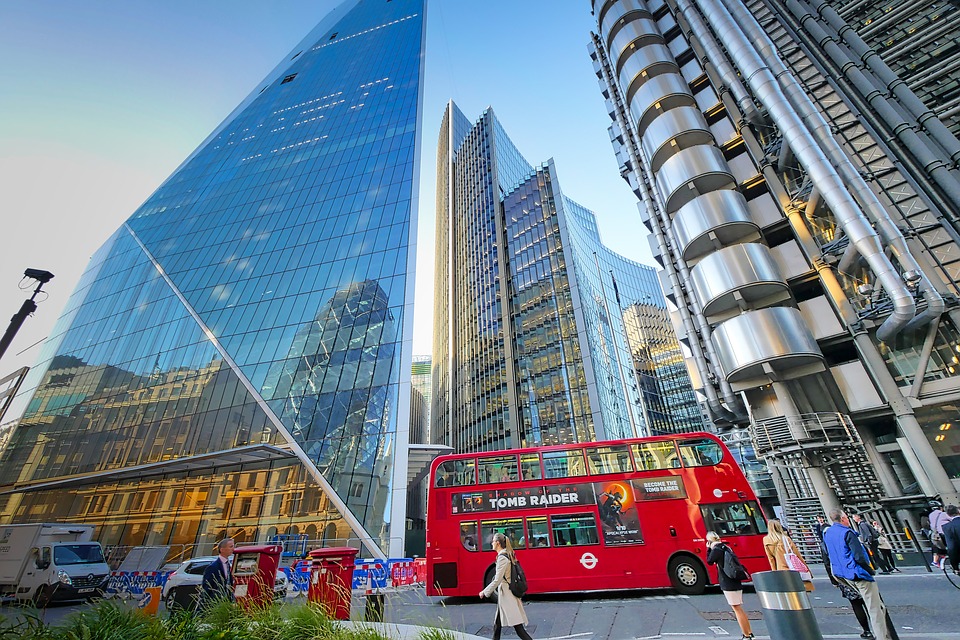The UK economy is set to recover much faster than expected from the Covid crisis as a resurgence in consumer spending and the success of the vaccine rollout boosted official forecasts.
According to the International Monetary Fund’s latest World Economic Outlook report, the UK economy will expand seven per cent this year, a sharp increase from the 5.3 per cent predicted in the Fund’s previous report in April.
The seven per cent expansion is the joint highest rate of all advanced economies, tied with the US. However, the American economy suffered a 3.5 per cent contraction last year, meaning if the US reaches the IMF’s forecast, its economy will have recovered from the Covid hit.
Of all the group of G7 seven nations, the UK suffered the harshest hit from the Covid crisis, with economic output plummeting 9.8 per cent in 2020.
The IMF also expects growth next year to be slower than first thought, down 0.3 per cent to 4.8 per cent – still the second fastest among G7 nations.
The reopening of the services sector of the economy – which the UK relies heavily on – after the successful relatively earlier rollout of Covid vaccines compared to its peers has triggered a resurgence in economic activity in the UK, prompting the IMF to raise its forecasts.
Responding to the report, chancellor Rishi Sunak said: “There are positive signs that our economy is rebounding faster than initially expected, with the IMF forecasting the UK to have the joint highest growth rate in 2021 among the G7 economies.”
To find out more about how we can assist you with your Second Charge Mortgage please click here
“That said, we still face challenges ahead as a result of the impact of the pandemic, which is why we remain focused on protecting and creating as many jobs as possible through our Plan for Jobs.”
The enormous stimulus programmes launched by advanced economies to protect households’ income, jobs and prevent business bankruptcies is likely to push their combined debt-to-GDP ratio to 122.5 per cent by the end of this year.
The IMF expects Japan to have the slowest rate of output expansion of all advanced economies in 2021, rising 2.8 per cent, reflecting relatively longer lockdown periods in the country.
Europe’s largest economy, Germany, is forecast to have the second worst rate of growth at 3.6 per cent. Italy is third with a 4.9 per cent expansion.
China is expected to gain a greater share of the global economy.
Access to vaccines determines economic trajectory, warns IMF
The economic trajectory of each country has become more determined by their access to Covid vaccines, the IMF warned in the report.
Advanced economies have largely rolled out vaccines at a rapid rate, while a large proportion of emerging market and developing economies have struggled to secure enough vaccine supply to distribute among their populations.
These disparities in vaccine allocation has resulted in the global economic recovery “split[ting] into two blocs: those that can look forward to further normalisation of activity later this year (almost all advanced economies) and those that will still face resurgent infections and rising Covid death tolls” the IMF said.
Gita Gopinath, the IMF’s chief economist, said: “growth prospects for advanced economies this year have improved by 0.5 percentage points, but this is offset exactly by a downward revision for emerging market and developing economies driven by a significant downgrade for emerging Asia.”
The Fund called on countries that had procured excess doses – mostly rich economies – to donate vaccines to nations with low supply levels.
IMF urges central banks to keep monetary policy loose
The Fund urged central banks to maintain ultra-loose monetary policy in order to prevent a slowdown in the global economic recovery.
The Fund dismissed recent sharp price rises as purely “transitory” and said central banks should “avoid tightening until there is more clarity on underlying price dynamics.” However, it did say central banks should be “prepared to move quickly.”
“The current spikes in annual inflation in part are the result of mechanical
base effects from last year’s low commodity prices. Moreover, prices have increased
because of the likely transient supply-demand mismatches,” it said.
Latest data shows inflation in the UK is already running higher than the Bank of England’s target, up 2.5 per cent annually in June.
Criticism of central banks’ adherence to quantitative easing is intensifying, with members of a House Lords committee publishing a report last week accusing QE of widening wealth inequalities.
By Jack Barnett
Source: City AM
Discover our Second Charge Mortgage Broker services.

